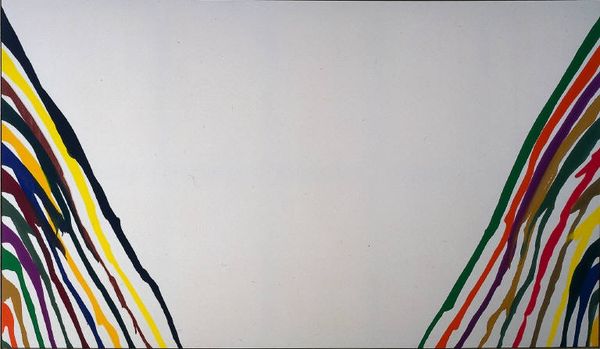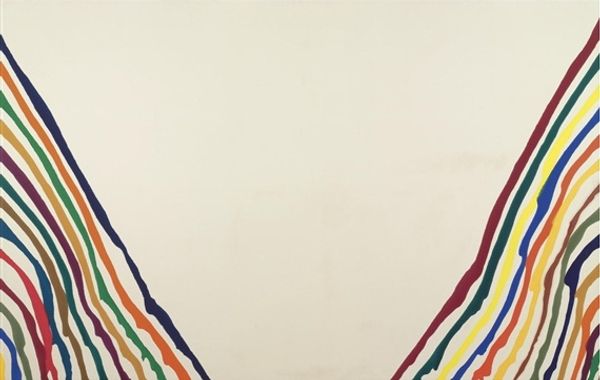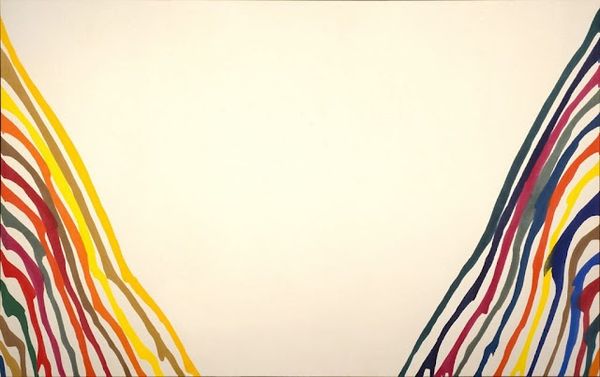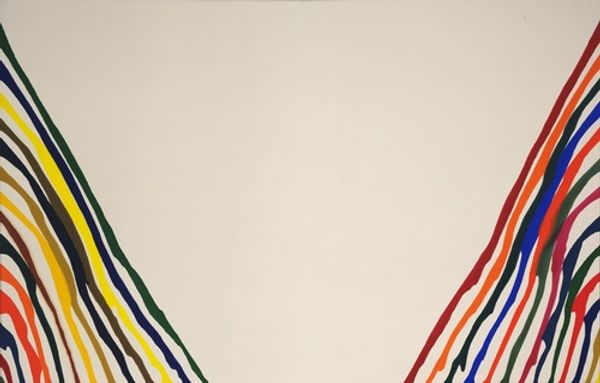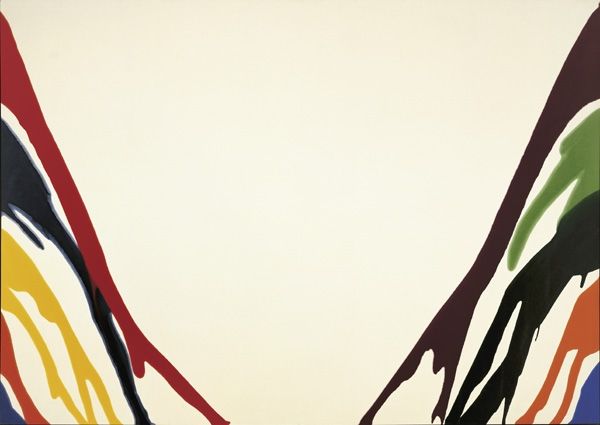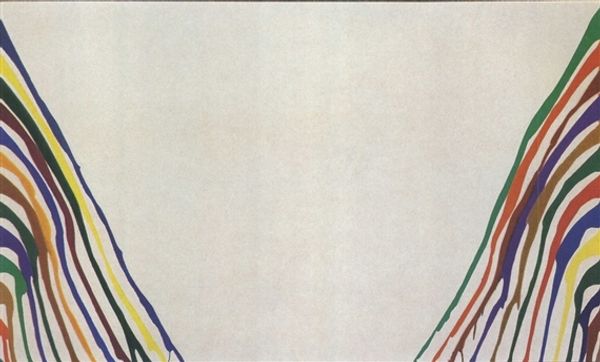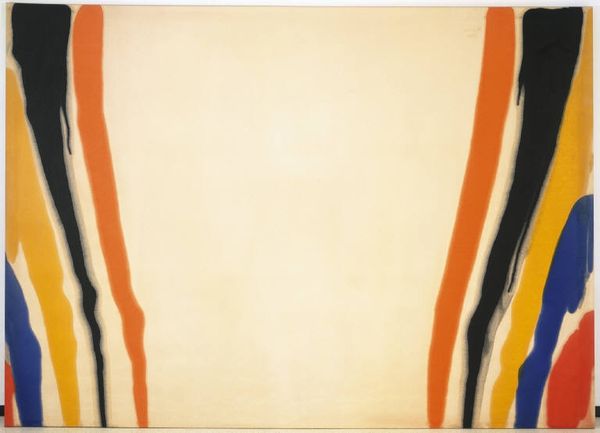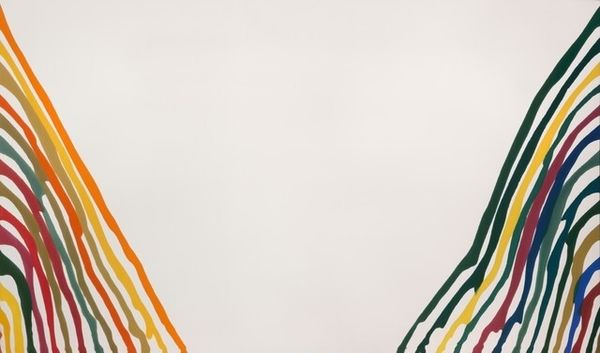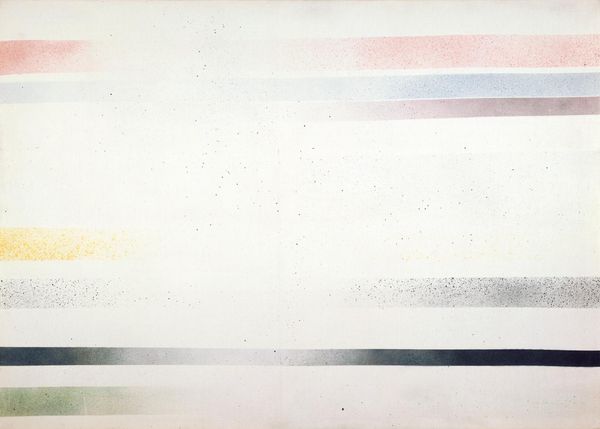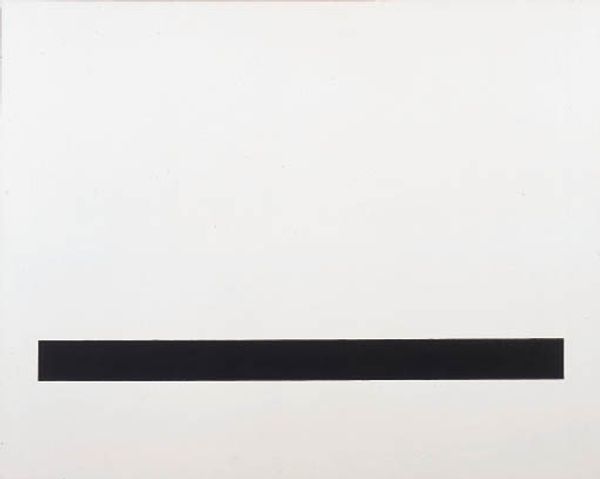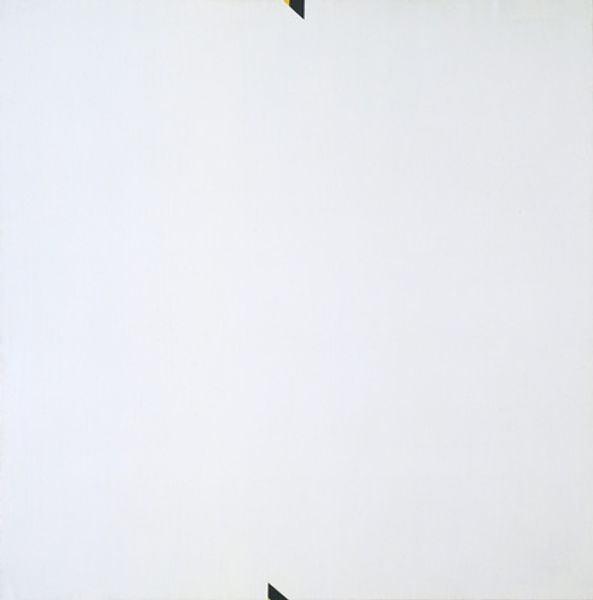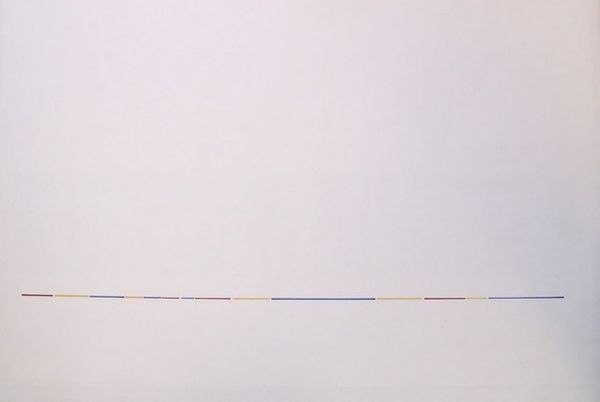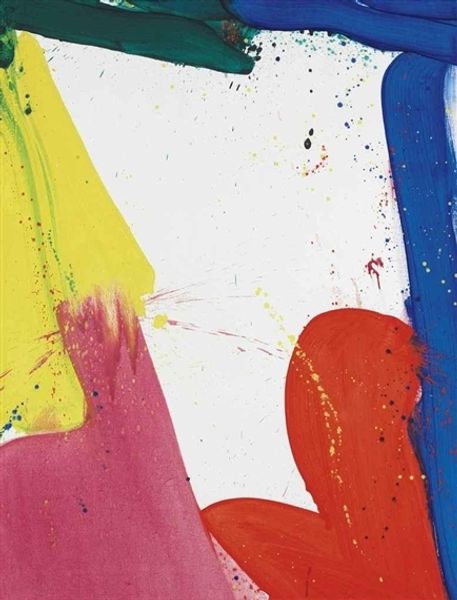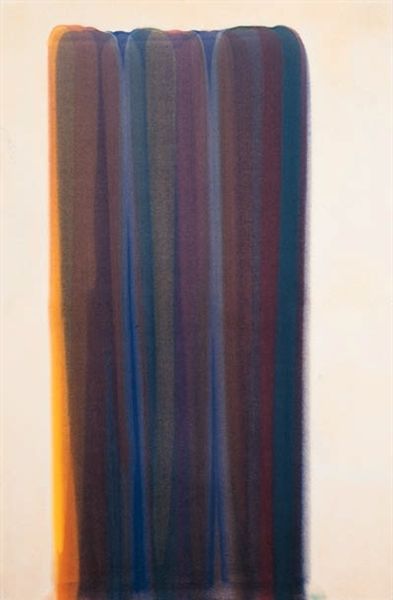
#
washington-colour-school
#
natural stone pattern
#
naturalistic pattern
#
animal print
#
geometric pattern
#
tile art
#
abstract pattern
#
organic pattern
#
flower pattern
#
line
#
pattern repetition
#
layered pattern
#
orange
Dimensions: 449.6 x 260.4 cm
Copyright: Morris Louis,Fair Use
Curator: Looking at this, I feel an immediate sense of lightness and… well, almost joy. The colours, the spaciousness…it's uplifting, isn't it? Editor: Indeed. We're looking at Morris Louis's "Alpha-Pi," created in 1960. Louis was a key figure in the Color Field painting movement. Notice how the unprimed canvas plays such a vital role. Curator: Absolutely, that raw canvas is just as important as the pigments he used. He seems to be celebrating the very materiality of the medium. Reminds me of someone removing their shoes just to feel the earth. Editor: The staining technique he employed was quite radical for the time. He poured diluted acrylic paint onto the canvas, allowing the colours to soak directly into the fabric. There's no impasto, no brushstrokes. It's almost anti-painterly. And you can see echoes of Jackson Pollock, maybe even Helen Frankenthaler. What do you think about these artistic influences? Curator: Influences are undeniable, sure, but for me Louis takes it somewhere else. There's such control here, such restraint in a sense. Each colour interacts with the raw canvas almost…democratically, like each one has a specific reason to be there, even if we can’t immediately identify those reasons. Editor: Fascinating. Art critics positioned Louis’s works, and Color Field painting in general, within Clement Greenberg's formalist agenda, prioritizing flatness and opticality over narrative or social commentary. Was this pure painting a turn inward at a pivotal point of social turbulence? Curator: You know, when I look at the pristine white space it doesn't necessarily feel disconnected. Maybe it's a blank slate, a space of possibility opened up through a colourful, energetic yet self-contained expression. Editor: It's intriguing how the "nothingness" becomes so vital in that formulation. Thanks for your time today! Curator: Anytime! Always a pleasure to share reflections and, ideally, to invite new interpretations, new dialogues with such pieces.
Comments
No comments
Be the first to comment and join the conversation on the ultimate creative platform.
